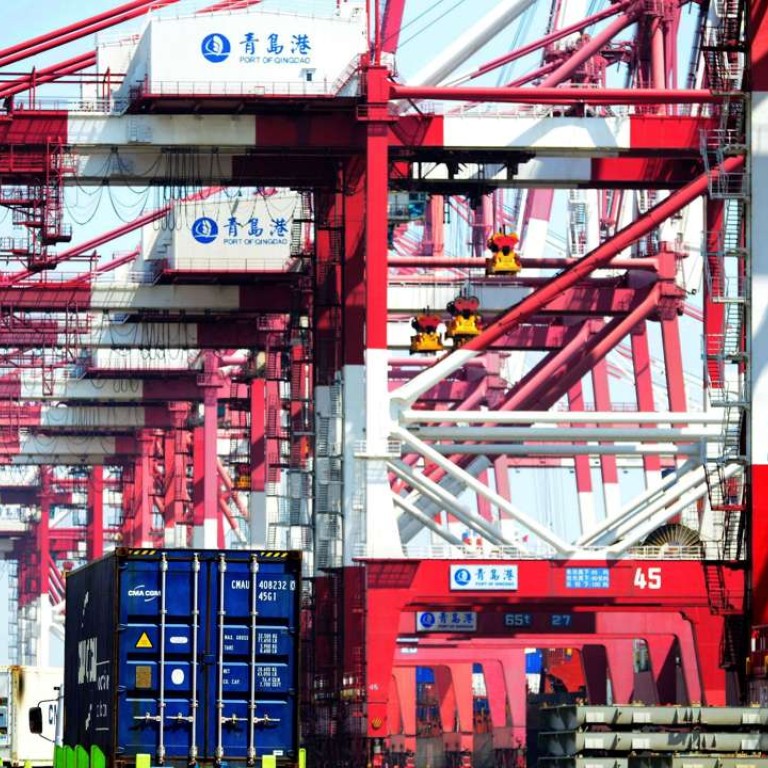
Mainland stocks retreat, pressured by anti-speculation crackdown, shrugging off better-than-expected GDP data for first quarter
National Bureau of Statistics reports China’s GDP grew 6.9pc in first quarter, the fastest pace since third quarter of 2015
Mainland Chinese stocks dropped on Monday, extending a 1.2 per cent loss last week, as investors grew wary of tightened regulations on speculative trading and shrugged off better-than-expected GDP data for the first quarter.
The benchmark Shanghai Composite Index lost 0.8 per cent or 23.9 points to end at 3,222.2, paring back an earlier decline that at one point saw the index below the 3,200 threshold.
The large-cap CSI300 dropped 0.2 per cent or 6.6 points to 3,479.9. The Shenzhen Component Index closed 0.7 per cent lower to 10,450.9, and the startup board ChiNext index lost 1 per cent to 1,868.3.
Shares in recently listed companies tumbled after securities regulators warned of speculative trading in those stocks, while some stocks related to Xiongan New Area also retreated following sharp gains earlier this month.
“We’ve already seen ‘flash crashes’ in several stocks’ prices last week. That suggests money has escaped in response to regulators’ efforts to curb stock speculation,” said Yan Kaiwen, an equity analyst for China Fortune Securities.
“As the speculation crackdown intensifies, short-term risks are rising in domestic stock markets,” Yan said. “Risk appetite has waned among investors.”
On Friday, China Securities Regulatory Commission spokesperson Zhang Xiaojun said that regulators will punish those found guilty of malpractice in transactions related to new listings, as the continued rally of some stocks may be manipulated.
The Shanghai-listed shares of Baiyin Nonferrous Group and the Shenzhen-listed shares of Zhejiang Meili High Technology, which were listed earlier this year and witnessed big gains, plunged 10 per cent on Monday.

Several Xiongan-related stocks also resumed trading on Monday, but their performances were mixed.
Rigging and sling product maker Juli Sling sank by its allowable limit of 10 per cent to 12.41 yuan in Shenzhen. Property developer China Fortune Land Development also lost 10 per cent to 39.95 yuan in Shanghai.
However, Beijing-based cement producer and property developer BBMG rose by its 10 per cent limit to 9.1 yuan in Shanghai.
Fourteen Chinese companies were halted from share trading last week, citing the need to evaluate the potential impact from Xiongan, a new special economic zone that Beijing hopes to build in Hebei province, modelled on the Shenzhen Special Economic Zone and the Shanghai Pudong New Area.
The Shanghai Stock Exchange also issued a statement warning investors against risks in Xiongan-related stocks.
The resumption of some Xiongan-related stocks can hardly reverse cooling sentiment. The corrections may last longer than expected, especially after regulators turned tough on speculative trading
“The resumption of some Xiongan-related stocks can hardly reverse cooling sentiment,” Chen Xiaopeng, an analyst at Sealand Securities said. “The corrections may last longer than expected, especially after regulators turned tough on speculative trading.”
Harbin High-Tech Group shares were down by the 10 per cent daily limit, closing at 9.1 yuan after the Shanghai bourse queried its profitability. The company, which recorded an 11.6 million yuan (US$1.69 million) net loss for the first nine months last year, suddenly reported a 27 million yuan net profit in the last quarter.
Earlier in the day, the National Bureau of Statistics reported China’s GDP grew 6.9 per cent in the first quarter, the fastest pace since the third quarter of 2015. The result was up from the 6.8 per cent growth in the previous quarter and well above China’s annual target of about 6.5 per cent growth.
“The upshot is that China’s economy continued to experience strong growth last quarter and the upbeat data for March suggests that some of this strength will likely extend into the second quarter,” said Julian Evans-Pritchard, China economist for Capital Economics, in a note on Monday.
“Nonetheless, with the acceleration in credit growth that helped drive the recent recovery now being reversed, we still expect the economy to begin slowing before long,” he said.
Hong Kong stock markets remained closed Monday for the Easter holidays and will resume trading on Tuesday.


